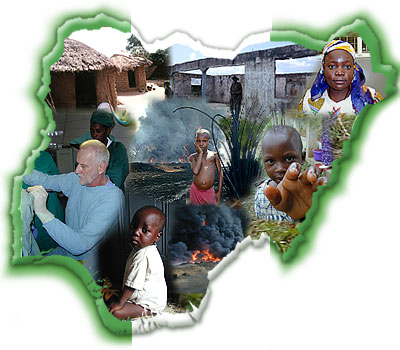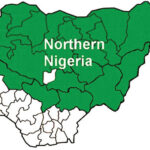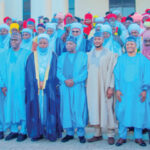By Nkem Okocha
Africa is home to six of the 10 fastest growing economies in the world but is also home to seven of the 10 most unequal societies in the world. Nigeria features on both indices and the economic hardship of the COVID-19 pandemic means that Nigerians are falling into poverty at a faster rate.
The World Bank estimates that a further 15 – 20 million Nigerians will be impoverished by 2022. One of the biggest barriers to economic equality is access to finance, making financial inclusion a necessary condition for development and poverty alleviation.
- Target vulnerable poor with COVID-19 vaccine – FG urged
Bustle, hustle inside the famous Wukari Yam Market
The gap in access to much-needed credit is being felt by much of Nigeria’s informal economy. There are noteworthy efforts being led by a variety of private and public sector initiatives committed to preserving our informal sector and its players – mostly the working poor – while ensuring that the country can continue to harness the benefits of its economic activities through the provision of loans and grants, that are otherwise impossible to access in the rural communities where most of the financially excluded live.
Increasing access to loans and grants impacts economic well-being, encourages the growth of micro-enterprises and also improves the levels of trust in government and financial service providers.
These schemes include the Mamamoni initiative which is targeted at empowering low income women and giving them access to funds and skills so they can lead more successful lives.
On the public sector side, we have the Government’s Enterprise Empowerment Programme (GEEP) launched in 2016 by the federal government through the Bank of Industry (BOI).
Since it was established, the program has continued to empower and support Nigerians by providing access to interest and collateral-free loans for microenterprises.
Nigeria did not meet its 2020 target to reduce financial exclusion to 20% by 2020 and estimates show that financial exclusion still hovers at 37 per cent.
Regardless, initiatives like these have real-life impact on the lives of Nigerians.
Since the outbreak of COVID-19 in Nigeria, we have continued to record devastating socioeconomic consequences – although impact levels have reduced – it is undoing and inhibiting many of the solutions that had already begun to yield positive results for vulnerable groups.
To really understand the impact COVID is having, GEEP and 60 Decibels embarked on a project with the support of the Rockefeller Foundation to administer a survey amongst GEEP clients. The full survey result is set to be published in May 2021, upon the completion of 18 rounds of surveys, however, an interim report which contains results of the first 8 rounds conducted between August – December 2020 revealed that the pandemic caused reduced savings, business closure and reduced patronage.
Although the survey set out to unravel the impact of the pandemic it also showed that GEEP’s clients form a part of Nigeria’s most vulnerable and poor population meaning that the intervention is reaching those who really need the support.
Using a vulnerability index designed by 60 Decibels to measure how shocks impact families by assessing their poverty levels, financial situations, coping mechanisms and impact on food consumption, it was discovered that 47 per cent of GEEP clients are extremely vulnerable.
Against this criteria, 77 per cent of GEEP clients live in extreme poverty, 91 per cent reported a worsened financial condition, 84 per cent coped by dipping into their savings and 80 per cent of clients worried about their ability to work.
The model adopted by GEEP indicates that the Nigerian government has not been unresponsive to the state of poverty in the nation and is developing interventions and initiatives for our poor population. Amongst the people targeted by GEEP are women who represent a large percentage of vulnerable groups.
Acknowledging the gravity of the situation, one of the high-level goals of the replacement plan for the now-concluded Economic Recovery and Growth Plan (ERGP), is to lift 100 million Nigerians out of poverty by 2030.
This means that all policies designed will revolve around innovative solutions to alleviate the nation’s poverty problem. In the same vein, in Q3 2020, the CBN, developed a framework to advance women’s financial inclusion, a key component is expanding digital and financial literacy programs for low-income women. Increasing women’s access to financial services is important because their spending has a direct impact on development.
The private sector fills a gap for a mechanism that empowers low-income women with funds, knowledge and jobs to ensure they have better and sustained chances of living more prosperous lives.
The impact on development might seem insignificant but as capacity grows on both the side of financial service providers and also on the part of beneficiaries, tangible progress is inevitable.
Grant giving and small one-off loans are not a route to sustainable development or sustainable poverty alleviation. Indeed, the key to unlocking sustained successes that will stand the test of time and shocks similar to the magnitude of COVID-19 is accessibility for pro-poor groups.
It is important for the government to ensure that the peculiarities and limitations of this segment of the population – who represent a large part of the informal sector- are taken into consideration when designing and implementing policies and interventions.
All efforts should stay true to the mantra “in service to the poor”. While the nation has existing social protection solutions, some of which are currently undergoing a review process, it will be important to design a mechanism with long-term goals in mind.
As recommended by World Bank social protection specialists, our country could benefit from a programme that offers social insurance plans, an environment that encourages business productivity and integrates digital solutions to develop social registers that would help intervention targeting.
These will go a long way in providing a buffer and opportunities for our poor population to achieve improved economic outcomes and further ensure that the right type of interventions get to the groups that really need them.
The government should also consider leveraging social capital to disburse interventions so that more people who require these supports can access them.
As of now, many of these interventions can only be accessed by people who own bank accounts and corresponding bank verification numbers (BVN) and not too long from now, this will include National Identity Numbers.
However, a larger percentage of our poor population do not and cannot meet these requirements in the short term and are being left behind with no clear plans to avoid NIN becoming yet another indicator and access point from which many of our nation’s poor are excluded.
While institutionalizing our identification systems is a welcome development it will slow down the country’s efforts to meet poverty alleviation goals if it does not factor in a solution that is designed to ensure that unserved and underserved segments of our informal population can meet the requirements to be included in our identification systems.
Finally, as Nigeria develops a roadmap to improve economic outcomes for our country’s poor population, we would benefit from adhering to the World Bank’s recommendation for the reformation of our current social protection program to see an increase in investments and financing, dissolution of duplicate responsibilities, improved cooperation between implementing ministries and agencies and coverage expansion, resilience and responsiveness of these programs to shocks.
Okocha is the founder of Mamamoni

 Join Daily Trust WhatsApp Community For Quick Access To News and Happenings Around You.
Join Daily Trust WhatsApp Community For Quick Access To News and Happenings Around You.


